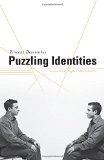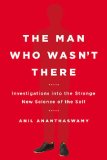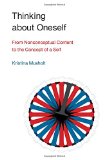new book – ‘Stranger in the Mirror: The Scientific Search for the Self’ by Robert V. Levine
April 30, 2016
(NOTE: As an Amazon Associate I earn from qualifying purchases.)
Stranger in the Mirror: The Scientific Search for the Self by Robert V. Levine (Princeton University Press, 2016)
(kindle ed.), (amazon.co.uk), (UK kindle ed.)
Book description from the publisher:
In Stranger in the Mirror, Robert Levine offers a provocative and entertaining scientific exploration of the most personal and important of all landscapes: the physical and psychological entity we call our self. Who are we? Where is the boundary between us and everything else? Are we all multiple personalities? And how can we control who we become?
Levine tackles these and other questions with a combination of surprising stories, case studies, and cutting-edge research—from psychology, biology, neuroscience, virtual reality, and many other fields. The result challenges cherished beliefs about the unity and stability of the self—but also suggests that we are more capable of change than we know.
Transformation, Levine shows, is the human condition at virtually every level. Physically, our cells are unrecognizable from one moment to the next. Cognitively, our self-perceptions are equally changeable: A single glitch can make us lose track of a body part or our entire body—or to confuse our very self with that of another person. Psychologically, we switch back and forth like quicksilver between incongruent, sometimes adversarial subselves. Socially, we appear to be little more than an ever-changing troupe of actors. And, culturally, the boundaries of the self vary wildly around the world—from the confines of one’s body to an entire village.
The self, in short, is a fiction—vague, arbitrary, and utterly intangible. But it is also interminably fluid. And this, Levine argues, unleashes a world of potential. Fluidity creates malleability. And malleability creates possibilities.
Engaging, informative, and ultimately liberating, Stranger in the Mirror will change forever how you think about your self—and what you might become.
Google Books preview:







